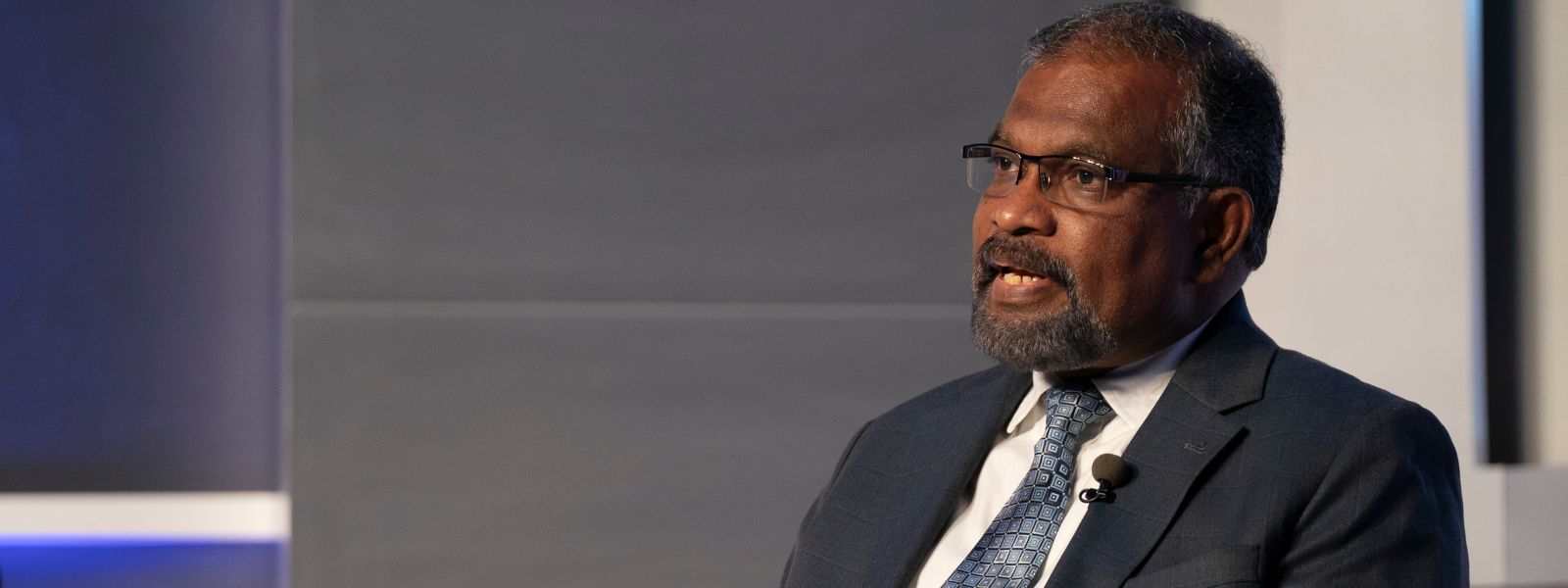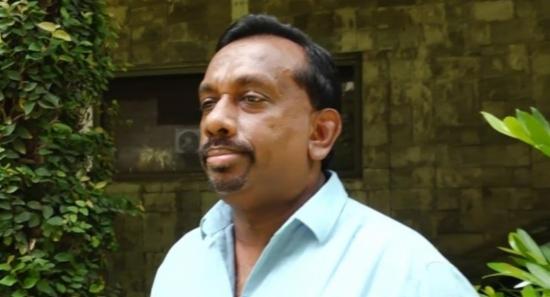.webp)

IMF's Capacity Building Crucial for Sri Lanka's Growth : Treasury Secretary
COLOMBO (News 1st); Sri Lanka's Secretary of the Ministry of Finance, Mahinda Siriwardena, reflecting on the country's journey from economic crisis to recovery, highlighted that structural weaknesses, policy mistakes, and external shocks culminated in the 2022 crisis.
Appointed in April 2022, Siriwardena took charge during the country's worst economic crisis since independence in 1948.
At the height of the crisis, Sri Lanka faced chronically low revenue-to-GDP ratios, significant fiscal and external deficits, and a sovereign credit rating downgrade. The country lost access to capital markets and struggled to service debt amidst dwindling foreign exchange reserves, which dropped to a mere $24 million. Essential goods became scarce, power cuts lasted up to 13 hours, and inflation peaked at 70%. Public trust in the government and institutions eroded, leading to widespread protests.
"Our immediate priorities were clear: restore macroeconomic stability, rebuild public trust, and lay the groundwork for sustainable recovery," Siriwardena stated.
The International Monetary Fund (IMF) played a crucial role, providing technical assistance and policy advice to design and implement a comprehensive reform program. This program focused on debt restructuring, fiscal consolidation, and institutional strengthening.
"The IMF's technical assistance and policy advice helped design and implement a comprehensive reform programme, addressing not just the fiscal issues, but monetary and financial, as well as governance, and institutional challenges as well. So, we initiated a comprehensive reform programme, anchored debt restructuring, revenue-based fiscal consolidation, and institutional strengthening. So we also prioritised building a resilient social protection system to shield vulnerable populations, because poor and the vulnerable were the most affected at that time," said Siriwardena.
Siriwardena highlighted the extensive support from the IMF, which included around 200 missions and training programs since January 2021, with approximately 80 focused on fiscal and public financial management. This support was integral to incorporating a disciplined fiscal culture in Sri Lanka and seamlessly integrating technical assistance with broader macroeconomic programmatic support under the Extended Fund Facility (EFF) arrangement approved in March 2023.
Key reforms included building a resilient social protection system to shield vulnerable populations, enhancing public finance management, and improving governance and revenue administration. These efforts aimed to address the root causes of the crisis rather than merely treating its symptoms.
The results have been significant. In the past year, Sri Lanka achieved 5% economic growth, a stark contrast to the 10% contraction in the previous two years. Inflation has dropped from 70% to near zero, and foreign exchange reserves now exceed $6 billion. The government has maintained primary surpluses, demonstrating a commitment to fiscal reforms.
However, Siriwardena acknowledged that the recovery remains fragile. Continued fiscal discipline, sound macroeconomic management, and rebuilding both domestic and international confidence are essential for long-term stability. The reforms have not only resolved immediate fiscal challenges but also better equipped the country to handle future crises.
Siriwardena emphasized the importance of collaboration between Sri Lanka's authorities and development partners, ensuring that reforms were embedded in the local context for greater sustainability. He also shared reflections on the recovery journey, stressing the need for early and comprehensive action, timely collaboration with international financial institutions, and the integration of capacity development with fiscal and economic reforms.
He underscored the importance of protecting the poor and vulnerable through targeted social protection while maintaining other policy objectives. Effective communication with stakeholders and building political consensus were also highlighted as critical factors for successful reforms.
Other Articles
Featured News





.png )




-791191_550x300.jpg)



-789996_550x300.jpg)
-789879_550x300.jpg)
-789357_550x300.jpg)
-788581_550x300.jpg)











.webp)






